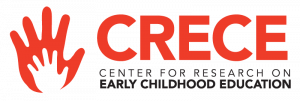 Grant Funds Teacher Training, Documenting and Evaluating the Growing School
Grant Funds Teacher Training, Documenting and Evaluating the Growing School
Madison, WI . . . Over the next five years, a team of early childhood educators and university evaluators, funded by a $1 million community impact grant from the Wisconsin Partnership Program at the University of Wisconsin School of Medicine and Public Health, will document, evaluate and train the teachers of Madison’s innovative One City Schools.
Founded by community leader Kaleem Caire as a nonprofit preschool in 2015 on the city’s south side, One City was approved last year as a UW System public charter school with plans to expand from pre-kindergarten to sixth grade. The school uses a unique two-generation approach to empower students for success in school, life and health while also addressing the needs of their parents and community members.
“Our mission is rooted in childhood education because it has the greatest opportunity for impact, not just on One City’s children and their families, but also the greater Madison community, region, and beyond,” states Caire. “We are honored to have the support of the Wisconsin Partnership Program through the School of Medicine and Public Health to help make this mission a reality.”
“Education is a building block of healthy communities,” states Andrea Dearlove, senior program officer of the Wisconsin Partnership Program. “When people have access to quality educational opportunities, families and communities thrive. Our grant will support the school in advancing health equity through an innovative model of early childhood education.”
The idea for the grant began when Caire reached out to education researchers Beth Graue, a professor and early childhood expert, and Tenah Hunt, an associate researcher and education evaluator, both at the UW–Madison School of Education’s Wisconsin Center for Education Research. Together they began work with One City on a project proposal to create a multilayered professional development and evaluation process.
The first goal of the project calls for all One City staff to receive full professional development training in AnjiPlay, an internationally-recognized early childhood curriculum developed in China, and in Expeditionary Learning, a U.S.-developed curriculum based on a mastery for knowledge, skills, character and high-quality student work encouraged in lively classroom environments.
The second goal falls on Graue and Hunt to document how One City accomplishes its goals and shapes children’s success. “Our role is to partner with One City stakeholders to develop and implement a rigorous longitudinal evaluation of One City’s educational approach, which includes how the school trains staff, engages parents and the larger community and prepares its young children,” explains Graue, Sorenson Professor of Early Childhood Education and director of CRECE, the Center for Research on Early Childhood Education.
“We will evaluate not only the teachers’ experiences,” adds Hunt, “but also the outcomes and experiences of the children in the school, their families and community partners – it will be a comprehensive evaluation of three phases focused on process, outcome and impact. I want our work to help One City identify what is going well and should be expanded, as well as areas they can tweak and improve.”
Hunt, who is trained in culturally responsive evaluation and holds degrees in social welfare and public health, emphasizes the importance of facilitating family and community engagement, and leadership, throughout the evaluation. “Our evaluation team will include an advisory group of One City parents, teachers, staff and community partners who will meet regularly to review and advise on our data collection methods, results and recommendations for One City’s improvement.”
The researchers hope to help educators and communities understand how One City’s unique model can close gaps in education and health. And they want their findings to help guide the early childhood education field, plus provide support for public policy and system changes for the education of young children, such as moving to a full-day 4K, better wraparound child care and an extended school year.
“On a local level, I’d love to see kids coming out of One City who are competent, motivated, engaged learners who can compete against any of their peers,” says Graue. “I’d like to see increased stability in One City’s teaching staff because they are invested and treated as professionals. And, I’d like to see increased well-being for the families and community members.”
“Ultimately, we want our work to support One City’s efforts to revolutionize the public education system,” states Hunt. “We hope to document that all children can be academically successful if educated from a young age in a school that encourages students, their families and entire communities to become healthier, more resourceful and better learners.”
This project is one of six grants funded by the Wisconsin Partnership Program at the University of Wisconsin School of Medicine and Public Health through its Community Impact Grants program. The projects were selected for their potential to create conditions, systems and policy solutions that lead to equitable and sustainable improvements in health.
(October 17, 2019, By Janet L. Kelly)
